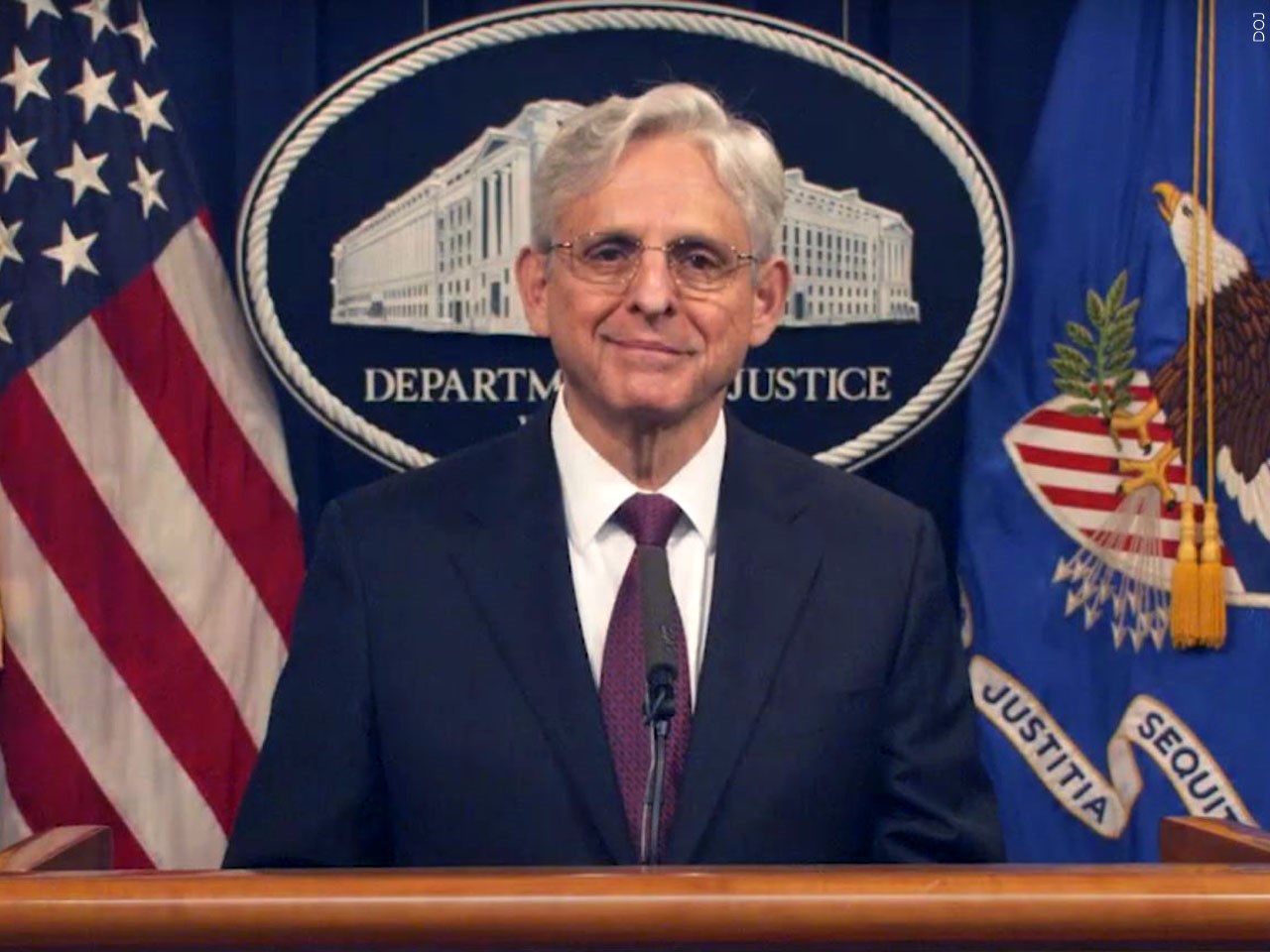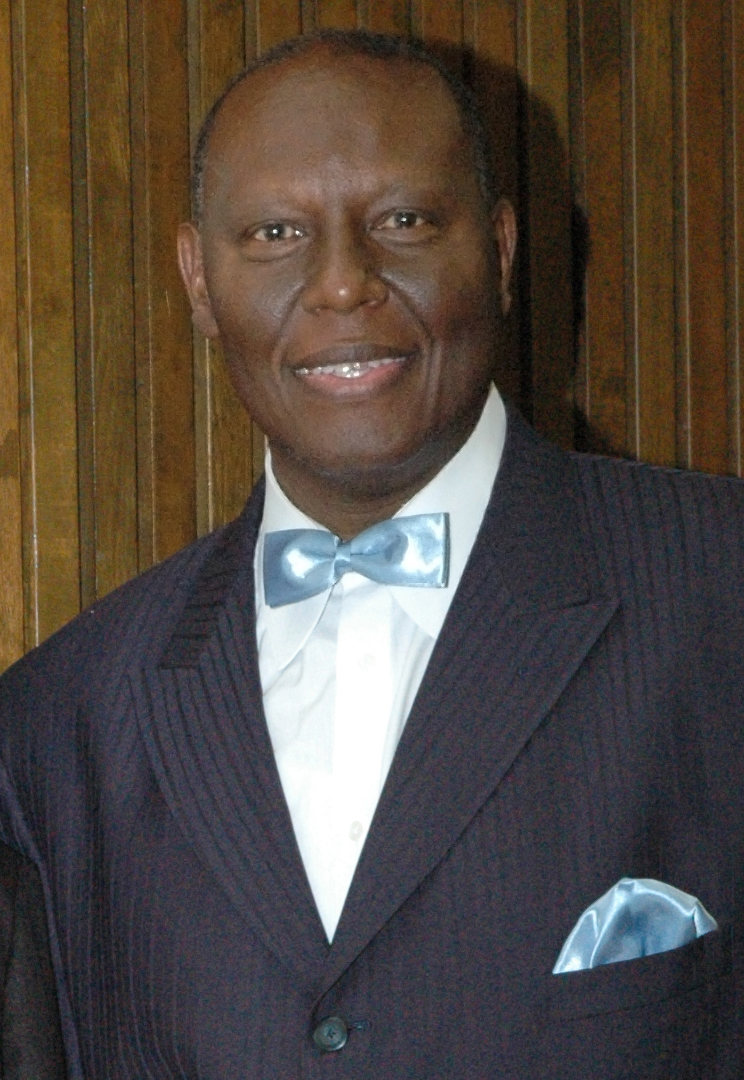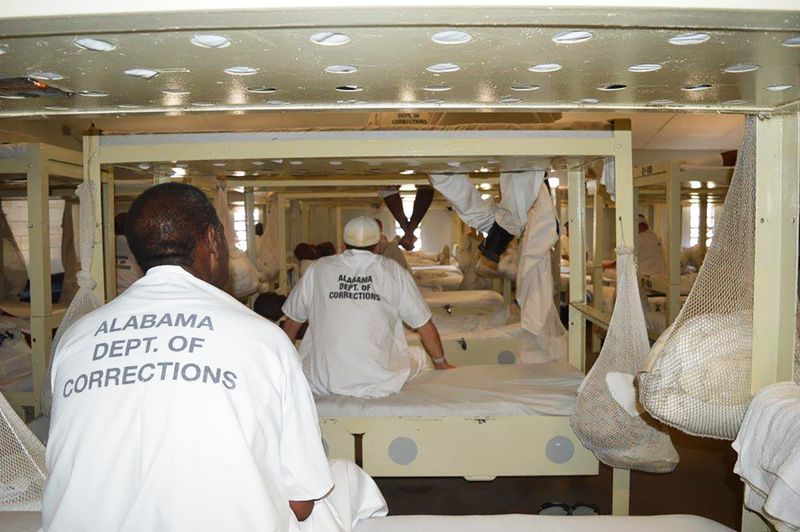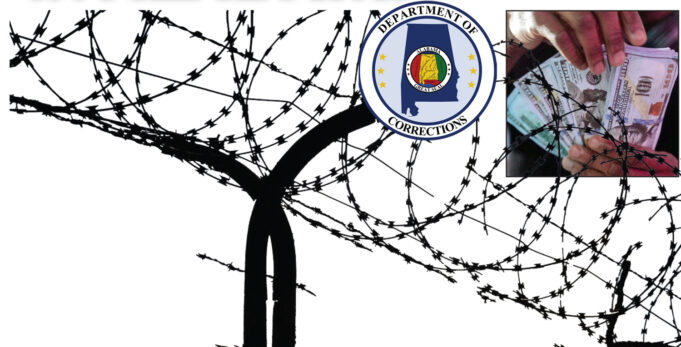It is difficult to imagine the pain, agony, and horror of being drugged, raped, and sodomized.
But Cedric Griffin, now serving 27 years in the infamous Alabama prison system, recounted how it happened to him.
Last year, as he sat in his drab, dank Kilby Correctional Facility cell, he would feel dizzy and lightheaded. He said he soon learned other inmates and complicit guards were victimizing him.
“They would randomly select men and place them to sleep,” he explained in a heartbreaking and compelling interview. The men were sedated, often through food or drink, and then raped.
Prison officers allowed inmates running the sex ring to move about freely, walk out of their cells, enter the cells of victims and do whatever they wanted, said Cedric. Sometimes victims were taken from cell to cell.
“It was like sex trafficking and sex labor,” said Cedric.
His personal hell began in the summer of 2021 and lasted three months.
“I would wake up the next day feeling real crazy in my body. The end game was the inmate perpetrators would convert their victims into prostitution. It was like a covert operation where the johns would pay $25 through their commissary, which was converted to real money through Cash App,” Cedric explained.
Once he reported the scheme to authorities, things didn’t get better. He said an $11,000 bounty was placed on his head and he survived multiple attempts to kill him inside a system where the murder of inmates is common. “I am at war with Satan himself,” Cedric said.
He described how the Alabama Department of Corrections has played a shell game with him, instead of protecting him. He has been moved to three different facilities since he reported the scheme. As of late February, Cedric was held at the Limestone Correctional Facility in Harvest, Ala. The state says the medium level security facility holds 2,250 prisoners.
The tales of horror Cedric shared would be shocking except they aren’t new—and virtually nothing has been done about the violent, decrepit, overcrowded system. A slow-moving lawsuit by the U.S. Department of Justice, charging the state of Alabama with violating the constitutional rights of inmates, is meandering through the courts. Life in hell, however, remains the same.
Cedric’s suffering mirrors abuses recounted by President Biden’s Justice Dept. in a 24-page lawsuit. Last November, the Justice Department filed an updated complaint. “In the two and a half years following the United States’ original notification to the State of Alabama of unconstitutional conditions of confinement, prisoners at Alabama’s Prisons for Men have continued daily to endure a high risk of death, physical violence, and sexual abuse at the hands of other prisoners,” read the complaint signed by U.S. Attorney General Merrick Garland.

“Because of inadequate supervision, correctional officers do not observe the rampant sexual abuse, they do not intervene, and the cycle of abuse continues. As such, ADOC fails to protect prisoners from the harm of sexual abuse,” said the Justice Dept.
“Alabama’s prisons have a severe and widespread problem with sexual abuse, and it’s too often undetected and unpreventable,” the complaint continued. “Sexual abuse has been documented in all areas of ADOC: dorms, cells, recreation areas, the infirmary, bathrooms, and showers. Many prisoners say they were abused when drugged, impaired from drugs taken voluntarily, or when an assailant was high. Some drugs available in Alabama’s prisons can immobilize or knock you out, making you vulnerable to sexual abuse.”
Federal investigators said Alabama’s uncooperative corrections department personnel, a culture of impunity and almost zero accountability were rampant with prisoner-on-prisoner and guard-on-prisoner violence. The end results were homicides, rapes, and serious injuries.
The feds described the case of a 53-year-old prisoner who died after being strangled. A note revealed his fear for his life after another prisoner ordered his death.
The Final Call reached out to Kilby Correctional Facility, where Cedric says he was victimized. No one would confirm or deny his charges, or even confirm he had reported what happened. Cedric said some guards and inmates involved were moved and he believes some kind of legal case might have been in the works.
Daryl Baily, district attorney for Montgomery County, Ala., said he was unaware of any complaint by Cedric to his office. He was not aware of any pending charges or legal cases related to any complaint. There have been no arrests of anyone, he added.
Alabama’s prison purgatory
Since 1982 the prison population in Alabama has skyrocketed 179 percent, according to the Vera Institute of Justice. The Vera Institute says Blacks comprise 28 percent of state residents in Alabama, but 54 percent of people in prison. Whites, with a 66 percent majority of the state population, account for 46 percent of prisoners.
Reform has been a word that has come and gone for decades. Change has not come.
A “successful” federal lawsuit would mean a consent decree where Alabama voluntarily hands over all or part of its prison system to the Justice Dept. or a federal judge.

The Justice Department would come in and tell the state how to run the prison system with costly changes paid for by Alabama. The feds intervene under “CRIPA,” the Civil Rights of Institutionalized Persons Act.
Alabama, however, isn’t interested in playing ball with the feds. “The Complaint filed by the DOJ plainly ignores the years’ worth of information provided by the ADOC regarding the substantial and impactful reforms it continues to undertake,” the state said in a response two years ago.
“The DOJ, unfortunately, has ostensibly failed to acknowledge the tireless work and progress underway in this area,” state officials complained. “We intend to fervently defend our staff and Department in court and prove that this lawsuit fails on merit, fails to demonstrate sweeping patterns alleged by the DOJ, and fails to appreciate and acknowledge the incredible work our staff performs every single day across Alabama’s correctional system.”
Gov. Kay Ivey called the Justice Dept. report in 2020 “disappointing.” The state plans to move forward by building more prisons and following “our plan to reimagine and rebuild Alabama’s correctional system from the ground up,” she added.

Abdullah Muhammad, Student National Prison Reform Minister of the Nation of Islam, was candid in his response to the prison abuses in Alabama. “White men’s freakish behavior towards Black men can be traced back to slavery for the purpose of dehumanizing and oppressing them,” he noted. “Black men were made into homosexuals from colonial times as chattel slaves, and it was vicious, violent, and forced. The situation in Alabama is a continuation of that.”
U.S. prisons: widespread failure, widespread misery?
Bennu Hannibal Ra-Sun is an inmate and member of the Free Alabama Movement, an organization committed to human rights. “Prisons are not an Alabama problem. Prison is an American problem. And so, to think that they going to come into Alabama and fix our problem, while the same problem exists in 51 other states, we not naive like that,” he said. “What people need to understand is that what is reported going on in Alabama is going on in every jail, detention facility, juvenile facility, wherever people are caged, wherever human beings are caged.”
Attorney Efia Nwangaza, founder and director of the Afrikan-American Institute for Policy Studies and Planning in South Carolina and coordinator for the Malcolm X Grassroots Movement, sees nothing being resolved if the feds take over Alabama prisons.
“The federal prisons are no better. I don’t think that there is any real difference between the two—state and federal. Some of the same issues are violence, sex abuse, and sanitary conditions. You find those same issues in South Carolina,” she noted. “The fact of the matter is the attitudes, and the culture of prisons in this country are punitive as opposed to therapeutic. And so it’s just a matter of degree as to how hostile and how vengeful and cruel the prisoners are treated.”

Attorney Nwangaza continued, “This struggle should not be about reform. Instead, it should be about abolition. If we interpret the history of prisons as similar to the history of the police in this country, both institutions served to contain control and crush the spirit of African people.”
The Nation of Islam Student Prison Reform Minister in the Southern Region, James Muhammad, is aware of the notorious Alabama prisons. “They don’t have the resources. They are way understaffed. The inmate health care and mental health care is down. The food is poor. It’s a volatile situation,” he said. “At this point, the whole thing has to be thrown away, as the Most Honorable Elijah Muhammad said.
It must be rebuilt from the core if it is to be rebuilt. It can’t be rebuilt with the present mindset. Institutions are being flooded with drugs to soothe and control the inmates. People are dying, being disemboweled. Those in power are resentful of federal intervention, and their solution is non-cooperation and to build new prisons.”
Brother Bennu says all of the horrors are interconnected. “Follow the money,” he said. “The drugs are all part of the enterprise and the revenue that comes from our labor, what we spend on these canteens and collect phone calls, and these other services that they offer, as well as another criminal enterprise within the jail.

“Isn’t it strange that you can’t hug and kiss your wife or girlfriend when they come to visit, but it is permissible to be hugged up with another inmate?” he asked. “People wouldn’t even understand. You just wouldn’t understand. We deal with the contradictions. And then they come through with the shakedowns and the strip searches and that’s sexual harassment to us, you know, but they don’t talk about that form of sexual harassment.”
“I done been in prison 22 years. I ain’t never saw a person get wrote up for homosexuality, but we know what happened on the reverse. I can name you plenty of people who gonna have their visit terminated for sitting too close or touching a female,” he continued. “We ain’t trying to fix nothing and make it a little better. Like, because the history of it says that the only thing we going to be able to do with this is to just, you know, get rid of it.”
Grassroots fights called only answer to prison crisis
In Alabama, grassroots groups battle the prison system every day. The system is fueled by racism that criminalizes Black people at the drop of a hat and once you’re in the system, it’s difficult to get out, said activists and advocates.
With a Republican-dominated legislature, a political call for change is not coming. When The Final Call reached out to one state lawmaker about the problem, he declined to speak at all.
The Safe Haven Center, in Selma, Ala., was founded by Reverend Michael Bowen to help parole violators transition back into society. “From the onset, you need to realize the United States is the nation that believes in locking folks up,” the Rev. Brown said. “The prison population increased from 300,000 people in the early 1970s to 2.5 million people today; nearly 6 million people are on probation or parole. Alabama reflects this trend.”
Rev. Bowen emphatically stated nothing would change so long as the same people remain in power.
Dr. Robert O. White, an Alabama State University humanities professor, is also director of HBCU Legal Focus, a program dealing with prison issues. “The conditions that are taking place in the prison, the rape, the homelessness, the drugs, the shanks, the manipulation, the horrifying conditions is something that extends back into the Reconstruction Period,” he explained.
“Federal intervention will make no difference. The system is doing exactly what it’s designed to, you know, the whole purpose is to make these conditions as horrific as possible and to use the prison system, both state and federal, not only a means of control but means of making money,” he said.
You are dealing with evil and the prisoners are predominately Black, Dr. White continued. “It’s an opportunity to undermine decency and all the comforts of civilized human life. You know Alabama looks at incarcerated persons as animals, even worse than animals. We treat our animals in our zoos in our humane shelters better than we do prisoners.”
“The federal lawsuit would probably cause problematic administrative issues for the governor and the state of Alabama, it may impose fines or whatever, but the only thing that’s going to change the prison system in Alabama are the people,” he stressed. “You’re not dealing with people that’s neglectful; you’re dealing with people that oversee a criminal enterprise. That’s what I’ve always characterized it as a criminal enterprise.”
Pastor Kenneth Glasgow is founder of The Ordinary People Society based in Dothan, Ala. His program focuses on arrests, bail, and mass incarceration disparity. Civil rights leader Al Sharpton is his brother.
The federal lawsuit has been at the same place for two years now, he noted.
“Nothing occurred, nothing happened,” Pastor Glascow said. “The main issue is overcrowding. In Alabama, they will lock you up for any and everything. The other issue is once you get inside, you can’t get out. You can get a life sentence for a marijuana conviction. They come up with some of the most egregious and erroneous charges you ever want to see. And then they have the longest sentences that you ever want to see, which all that contributes to the overcrowding.”
“Then you got pardons and parole. Prison conditions are discussed in detail, but nothing is said about the stubborn parole board. They’re not letting anybody out. We’ve been going through that for the last four or five years to where nobody’s getting out of prison. So all that contributes to the overcrowding, which causes real pressure on needing more officers. You don’t have enough officers. You don’t have enough security. Don’t have enough good management. We’re caught in a vicious cycle,” he argued.
State politics and the Republican legislature are problematic with no desire to change prisons but the governor proposed spending $400 million earmarked for the covid epidemic to build a new prison, Pastor Glasgow noted.
“Real change will take a lot,” he said. “First and foremost, it will take the voice of the advocates; then it’s gonna take the families, then it’s going to take the legislators. Then it’s going to take the parole board. Then it’s going to take the Department of Corrections themselves.
“We got bills out here for pardon and parole demanding them to parole out more people and for them to develop a reasoning or evaluation assessment form on why they deny people parole. So we can look at it, at least give us a reason why you deny all these people parole.”
Meanwhile Cedric Griffin is still seeking help and trying to stay alive. He needs a lawyer and the NOI Prison Reform Ministry is trying to find a pro bono attorney. “I have to thank Allah (God) because I had no idea what type of friends I would receive over these 20 years constantly going in and out of prisons fighting,” said James Muhammad. “I mean, the head people. They called me immediately after I sent them a written notice of Brother Cedric’s plight.
They were like, ‘Man I sent it to the warden, the captain of the guard, the Inspector General, and the Preventive Rape Education Act of Alabama.’ Consequently, even the captains and chaplains have been checking on him daily. I believe that we have helped to save that brother’s life,” added the student regional Prison Reform minister.













